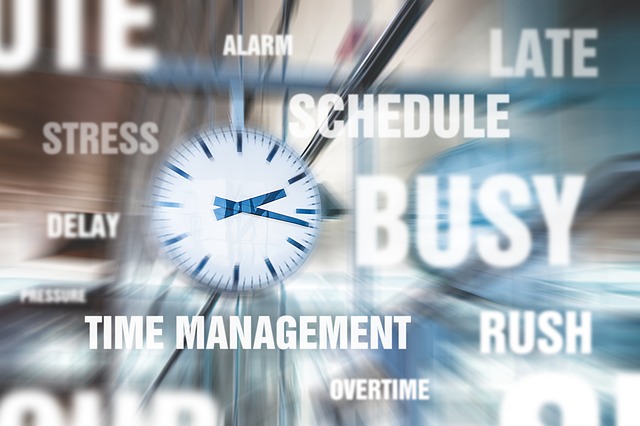Do you ever wonder where time goes?
Have you felt stupid because other people seem to manage their time better than you do?
Well, now is the chance to learn how to manage your time better.
First you need to know how actually you spend your time. And only then can you decide what you need to change.
No guessing allowed! You must take some measurements. Ideally you should do this for a full week of what, to you, is a normal week. However, it might be a good idea to first do it just for 1-2 days as an exercise in learning how it practically works out. Once you have sorted out any glitches (and especially learned to respond promptly to the alarm call) then do it for a full week. Do not do it when out of routine such as when on holiday or when there is a public holiday.
Prepare a form like this:
|
Personal Needs |
Work | Leisure | |||
| Activity | Time spent | Activity | Time spent | Activity |
Time spent |
Complete the form every hour of the day from when you get up to when you go to bed. Measure time to the nearest 15 minutes. Set an alarm to alert yourself every hour and take a moment to add more to this chart according to how you have spent the time since the last alarm. When you wake in the morning, complete the form for the night hours.
Personal Needs = sleeping, eating, family time, washing, dressing, shopping, household chores.
Work = paid employment but use this for voluntary work or household chores if you do not have paid employment.
Include work related activities you do at home, e.g. phone calls, preparing for the next day and travel to and from work (unless it is better counted as leisure if you listen to music, read or have other means of personal entertainment as your priority).
Leisure = e.g. sport, reading, music, TV or whatever you count as leisure or relaxation. Include ‘time out’ when you do nothing.
 Review your log and answer the following questions:
Review your log and answer the following questions:
- What percentage of the 168 hours in the week were spent on the three groups?
- Surveys like this have been done widely in the business world and the results suggest that a fair balance is:
a. Personal needs 45-55%
b. Work 25-30%
c. Leisure 20-25%. - How do you compare?
- Were there any special circumstances that may have distorted your findings?
- Look for trends or patterns of activity:
a. Were you generally in control of the time spent or did events control you?
b. What were the biggest time wasters at work?
c. What were the biggest time wasters outside of work? - How much leisure time was spent doing what you wanted to do?
- Do you need to delegate more?
- How do you deal with interruptions?
- Is procrastination a problem?
- Are you assertive?
- What changes do you need to make to reduce your level of stress both now and in the future?
- Is there anything about this exercise that surprises you?
- Did you take any short cuts?
- When will you repeat this assessment to see how the changes you introduce have worked out?
It was about 1980 when Brian first did a time management study. He was a young and enthusiastic general practitioner and met with a group of like-minded colleagues one evening each month. At one session they decided to study how they spent their time so they recorded their working week using the above model. At their next meeting they compared notes and discovered some fascinating contrasts and yet many parallels even though they came from different areas including deprived housing estates, a small market town and city suburbs with some very wealthy districts. It went well so they decided for their next meeting to do a similar analysis of their out-of-work activities. But then they had a crazy idea. It might have been insightful and inspired – Brian is still not sure. They decided to ask their wives to participate (this was a long time ago so all their group were male and married, which reflected what was, at that time, the normal family structure of general practitioners). The wives all came, each with records of their husband’s personal and leisure activities. They took over! They did not especially know each other but no introductions were needed. The men cowered in their seats while the wives compared notes about their short comings as husbands and fathers. The men’s attempted corrections and mild protests were squashed. The usual 90 minutes dragged to a conclusion and the ladies parted as old friends with, ’we must do this again’ echoing across the car park. They never did.
The doctors never had a group reflection about the experience either. Brian thinks they were too shell-shocked – but his memory was still vibrant nearly 40 years later. The doctors were altruistic and passionate about their professional responsibilities and presumed their wives concurred and supported them, but that was not how the wives saw it. They had a different impression. The wives accepted their husband’s role intellectually and were proud of them (Brian thought) but emotionally saw their professional commitment as contributing to their own sense of social isolation and loneliness as they coped almost like single parents. It was hard to articulate as it seemed so uncaring but they saw the patients as an enemy or ‘mistress’ that stole their husband away from key family activities and occasions (in those days GPs did their own out-of-hours work so, as well as a long working day, nights and weekends were interrupted by the need to visit patients while wives manned the phone).
It was a light bulb moment for Brian and brought home the need to see his personal situation from other’s point of view and not to presume on their understanding and support.
That story is an illustration of how significant a simple time management study can be – though it will not happen like this every time!
Ideally you should do this exercise for a full week and repeat it from time to time (perhaps, only every two to three years or after there has been significant changes in your time balance) to reassess your position and take significant changes into account.
When you do a survey as suggested it is easy to skip through the analysis without thinking very hard. Inevitably, you will find the exercise is not very helpful. It is much better if you can compare notes with someone who has done the exercise at the same time – just like Brian in the story.
If you do not have anyone to work with maybe filling in a form will help focus your attention. Are you ready for it?
Here it is. Click on the button and complete the questionnaire.
